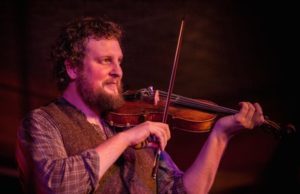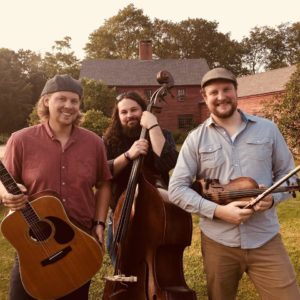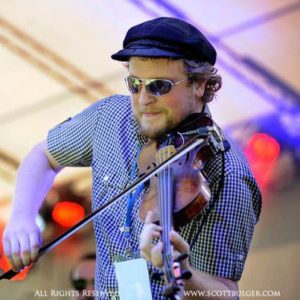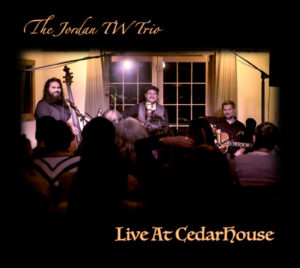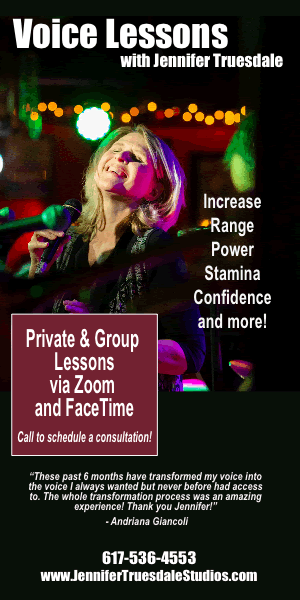Tirrell-Wysocki, a virtuoso fiddler, puts on no airs when asked how he initial learned to play fiddle: “Very informal in the woods of New Hampshire, mostly in barn dance and contra dance music,” he said. “That was how I first heard fiddle music and I tried taking some lessons with a woman named Jacquelin Laufman who made her living playing barn dances.”
Barn dances created an environment that culled a combination of Irish and Scottish and French Canadian and English and old New England music that blends into the repertoire used for contra dances. Tirrell-Wysocki grew up around those kinds of community events.
“From there, I just started to be drawn more and more into the Celtic side of things and have been moving in that direction ever since,” he said.
Other than his general fiddle lessosn with Laufman and another fiddler named Carolyn Parrott, Tirrell-Wysocki had to learn to play Celtic music mostly on his own. Why would a young person born in the 1980s turn to Celtic music instead of “cool” music like Aerosmith, The Beastie Boys, or Green Day?
“I was pretty young, so It wasn’t something I thought about at the time. It was just the music that spoke to me. I think one of the main things about it that there is such a wide range of emotion,” he said. “In Celtic music, you can have these heartbreaking, haunting slow airs and waltzes and marches. You can feel all of the sorrow and suffering of people that have been under the heel of the British for centuries. It’s incredibly powerful stuff in that way. But, then on the other hand you have these lively jigs and reels that are just so joyful. There is so much energy and life and happiness in them. You can’t help but get up and dance. It’s all just contained right there in the same genre of music.” That variety of moods can fill out a live show or a full length album. It’s what keeps Tirrell-Wysocki interested.
“I think it’s been over 20 years now,” he said. “I guess I got into the Celtic music when I was about nine or 10, and I’m 33 now, so it’s been over 20 years. The history of the music and the broad range of powerful emotion in the music.”
Tirrell-Wysocki, being completely steeped in Celtic, is hard pressed to pick a favorite few tunes that have inspired him. Yet, there are some he has been playing for a long time.
“There are some fiddle tunes that I remember falling in love with when I was nine or 10 years old, and I still performing them today,” he said. “There’s a great jig called “Banish Misfortunes.” There’s another called “A Mason’s Apron.” Those are just instrumental fiddle tunes, and I’ve identified with them for many years. I think also when you get into some of the songs, the vocals. There’s a whole new world that opens up because you’re actually telling people’s stories.”There is a song on his trio’s new CD called “I Feel So Near” written by the Scottish songwriter Dougie MacLean. Another tune titled “Paddy’s Lament” is about an Irish man who flees Ireland during the famine years and arrives just in time to be drafted into the front lines of the American Civil War. “It’s his experience with that, and that one is also interesting because of the great story that it tells,” Tirrell-Wysocki said.
Although there is some debate in the Celtic music world over whether new newly composed music can be considered Celtic, as opposed to the traditional Celtic tunes which are supported by history, Tirrell-Wysocki feels it’s all about what the musician is disciplined.
“I think it would depend on who you ask,” he said. “My take on it is that if you have been listening to this music and playing this music for decades, it gets into your bones in such a way that when go to compose a piece, it flavors your music whether you intended to or not. You can certainly choose to make choices in your composition that are more in line with your standards or more in line with your traditions.“
Even if a composer is not trying to write something that sounds traditional, if the player has been playing this for a long time, it will sound traditional regardless. “You’re so steeped in that, it’s going to come into your music regardless,” the fiddler said. “In my opinion, you can write something that is in the Celtic tradition even if it’s a new piece written by someone from New Hampshire.”
Some may think the old Celtic music and Irish songs are merely quaint. Yet, the genres demand a lot of self-discipline and years of dedicated practice to learn and perform. “Red Haired Boy,” which also appears on the new Live At Cedarhouse album, sounds tricky to play due to its quick tempo and short measures. Tirrell-Wysocki confirmed it in his own experiences over the years.“I used to play in a rock band, a jam band, which had a lot of improvisation, a lot of flashy soloing,” Tirrell-Wysocki said. “I had some friends who would listen to that band. They would hear me playing Irish music and they assumed it was much harder to play the rock music because it was flashier, because the crowds were bigger, because the stages and spotlights were making it look like a bigger deal. However, it’s quite the opposite. Celtic music is very technically challenging and it definitely requires more musical ability and more attention to detail to get that right to play than the other genres I’ve played, whether that be country, rock, jam band, improv. Bluegrass you could argue is on the same level.”
“I’m lucky enough to work with some great guitar players,” Tirrell-Wysocki said. “They, across the board, have been sort of shocked by how challenging it actually is to accompany Irish fiddle music as compared to other genres they might have played in. I’ve heard it said that it’s one of the hardest things to do on guitar is to properly accompany Celtic fiddle.”
On his trio’s new Live At Cedarhouse album is included a track titled “Cup Of Tea/Catharsis.” It’s got a lively, jaunty melody. Aside from its technical challenges, it demands one to ponder what might have inspired its lively, spirited zeal.
“’Cup Of Tea’ is a traditional Irish piece. ‘Catharsis,’ the other tune in that medley is not. That was written by a woman named Amy Caan who is actually from Vermont. I’m not sure what her motivation might have been in writing the piece other than the clue we get from the title. As far as ‘Cup Of Tea‘, a lot of this would’ve been dance music. It would have been stuff that was played around the pubs where people were trying to relax and forget their troubles. There would have been lot of pints of Guinness being served. People were just kicking back and trying to have a good time. I think that’s probably inspired the more spirited Irish tunes.”
For the melancholy “Paddy’s Lament,” Tirrell-Wysocki makes his vocal sound so forlorn and sad and seasoned that it might be hard to match his voice with his in person countenance.
“I guess I’m just trying to tell the story,” he said. “Throughout the album, I’m doing all the vocals on the album except the harmonies and the backups that the guys in my trio are singing. I’m not intentionally trying to make my voice sound anything other than the appropriate voice with which to tell that particular story. The story is very sad and there is frustration in his voice and there’s bitterness in there. If I’m doing my job correctly, than you’re hearing some of that in the vocal. Something like ‘The Wild Rover:’ That’s just about having fun and cheers with your friends and all that. Hopefully, the forlorn aspect goes away in that song and were just having a good time.”“The Wild Rover,” according to Tirrell-Wysocki is fool proof in making audiences happy and singing and clapping along. “It’s fun to get the audience involved,” he said. “That’s the main reason we do that. People love to hear it. They all recognize it. It’s a sing along they get on board for. You see people smile and lean back a little bit when we start playing it. Then there’s that clapping part that people try to get right as we go.”
Many of the Celtic and old Irish music centered on partying, dancing, and celebratory occasions. Like many who know of the genre, Tirrell-Wysocki said the need to be celebratory can be found in the dire history of Ireland.
“I guess my answer would be that they were trying to put aside their troubles,” he said. “The Irish people have had a pretty rough go of it for a pretty long time through out the centuries. One of the only things that they were allowed to do in terms of celebrating their own culture was to keep their traditional music. Being able to forget about some of their troubles and come together in the community gathering place, which would have been the pubs; just try to have a good time and enjoy good company and good drink and good music. I think that’s what would have inspired all that.”
Tirrell-Wysocki receives a lot of support from the New Hampshire Humanities to be able to share this historic music and these centuries old stories. After applying to and being approved by New Hampshire Humanities, an artist or speaker or musician can be compensated for appearances at libraries, community centers, and theaters.
“They’re a pretty amazing organization,” he said. “They fund appearances around New Hampshire, usually in libraries or historical societies or community centers. Some place that doesn’t have the budget to hire entertainment or to bring in a speaker can apply to the New Hampshire Humanities to have someone who is on their roster come in and present a program.”
Tirrell-Wysocki fashioned an education program with his music and songs called Songs Of Emigration: Storytelling Through Traditional Irish Music. He has made up to 40 appearances all over New Hampshire under the auspices of NHH.
“People can browse their roster and book you for free as long as the event is not charging admission and is open to the public,” he said. “They don’t have to pay anything to bring you there because the (New Hampshire) Humanities compensates you.”
From this point forward Tirrell-Wysocki would like to continue to try to reach more people. He and his trio are working toward building larger crowds, playing larger stages, and moving in the direction of listening environments where they can play some of the more mellow songs that have really interesting stories attached.
“There’s so much meaning in this music and what we’ve been trying to do for the past few years is move toward performances in situations where we’re able to present that in the best possible way to the audience,” the fiddler said.
